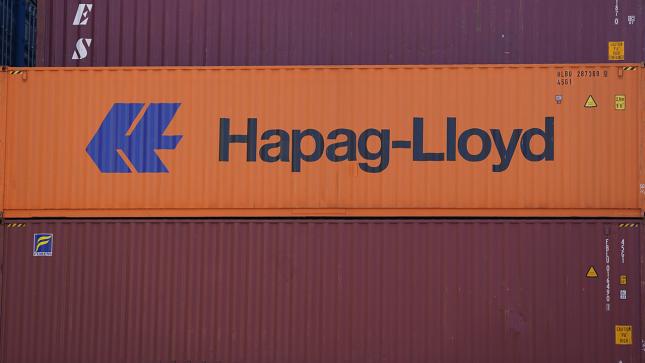Meteorologists Warn of Scorching Temperatures and Severe Thunderstorms in Germany
Northern Germany's Rail Traffic Disrupted Until Evening Due to Multiple Incidents
Vasi Philomin Joins Siemens to Spearhead Industrial AI Expansion
Former Chancellor Merkel Distances Herself From Current Government's Border Practices
Tragedy Strikes as Prince Harald von Hohenzollern Dies Ahead of Becoming a Father
Hapag-Lloyd's Strong Q1 2025 Overshadowed by Future Uncertainties

Hapag-Lloyd AG, the Hamburg-based container shipping giant, has reported a robust start to 2025, with first-quarter revenues reaching $5.3 billion and an EBIT of $487 million. The company attributed this performance to heightened demand and increased freight rates, which averaged $1,480 per TEU. However, the outlook for the coming months is clouded by uncertainties, primarily stemming from the U.S. government's decision to hike import tariffs in April 2025, which has unsettled customers and dampened demand.
The geopolitical tensions in the Red Sea further complicate the scenario, adding to the volatility in shipping operations in the region. While Hapag-Lloyd has reaffirmed its annual forecast, it cautions against 'very high uncertainties.' The ongoing negotiations between the U.S. and key exporting nations to reduce trade barriers present another layer of unpredictability, potentially reshaping the supply-demand dynamics in the container shipping industry.
In a recent development, Hapag-Lloyd's CEO Rolf Habben Jansen highlighted a significant uptick in shipping volumes following the U.S. and China's agreement to lower tariffs. This temporary truce in the trade war has unleashed a wave of pent-up demand for transpacific shipping, offering a glimmer of hope amidst the prevailing uncertainties. 'The last couple of days we see a huge surge of volume and now we need to see how long that lasts,' Jansen remarked, underscoring the transient nature of this demand spike.
The interplay of these factors paints a complex picture for Hapag-Lloyd and the broader shipping industry. While the company's strong Q1 performance and the recent surge in demand are positive signs, the overarching trade tensions and geopolitical risks pose significant challenges. Stakeholders are keenly watching how these developments unfold, as they hold the key to the industry's trajectory in the near term.